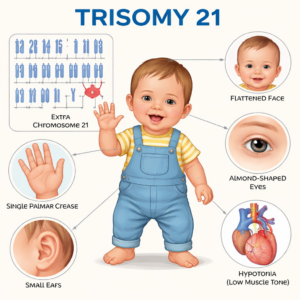What is Fabry’s disease?
Fabry disease is the result of mutations in the GLA gene. This mutation causes an affected individual’s body to fail to produce an enzyme known as a-galactosidase A, or it prevents this enzyme from working properly. This then leads to a build-up of glycosphingolipids in the body’s cells, which damages different parts of the body, triggering the many different symptoms of the syndrome.
Symptoms of Fabry generally appear in later childhood, from around ten years of age. However, many patients do not report any symptoms until adulthood. As a multisystem disorder, the disease may affect the hearing and ears, skin, neuropathic systems, gastrointestinal system, kidneys, heart, and brain of affected individuals.
Why is Fabry’s disease so commonly misdiagnosed?
Fabry disease is the result of mutations in the GLA gene. This mutation causes an affected individual’s body to fail to produce an enzyme known as a-galactosidase A, or it prevents this enzyme from working properly. This then leads to a build-up of glycosphingolipids in the body’s cells, which damages different parts of the body, triggering the many different symptoms of the syndrome.
Symptoms of Fabry generally appear in later childhood, from around ten years of age. However, many patients do not report any symptoms until adulthood. As a multisystem disorder, the disease may affect the hearing and ears, skin, neuropathic systems, gastrointestinal system, kidneys, heart, and brain of affected individuals. This complicated set of symptoms associated with the syndrome explains why Fabry’s disease misdiagnosis occurs.
How do we get the right diagnosis?
The right diagnosis for Fabry disease may require extensive genetic testing. However, understanding if this is necessary and if symptoms similar to those for the syndrome are indeed evidence of Fabry, the initial step towards a correct diagnosis can begin with genetic analysis.
FDNA’s AI platform has been developed to provide a faster and more accurate analysis for Fabry disease, other genetic syndromes, and rare diseases. Shortening diagnostic journeys and reducing the rate of misdiagnosis in the rare disease field is the platform’s aim. It also connects patients to the essential genetic counseling, and genetic testing, that will make a Fabry disease misdiagnosis a thing of the past.



